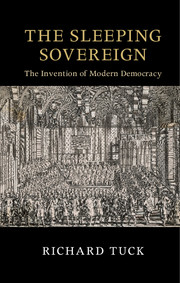1 - Jean Bodin
Published online by Cambridge University Press: 05 February 2016
Summary
In his eighth Letter from the Mountain, written in 1764 in defence of his Social Contract and Emile, against attacks made on them in Geneva, Rousseau declared that ‘Up to the present the democratic Constitution has been poorly examined. All those who have spoken about it either did not know it, or took too little interest in it, or had an interest in presenting it in a false light. None of them have sufficiently distinguished the Sovereign from the Government’. What he meant by this, he made clear both in the Social Contract and elsewhere in the Letters from the Mountain, was that the ancient democracies, in which the citizens gathered in an assembly on a regular basis to administer their societies and make judgements of policy about all matters of concern to them, were not an appropriate model for the kind of democracy he advocated. They had not distinguished between ‘government’ and ‘sovereignty’, and had treated both day-to-day policy questions and fundamental decisions about the organisation of their societies as falling within the scope of the democratic assembly. Against this view, Rousseau insisted that his democracy would be restricted to acts of sovereignty, affecting the fundamental legal structure, and that government – including even such things as decisions on going to war – would not ideally be democratic in character (his own preference was for aristocracy). In the Social Contract he described this kind of democracy as a ‘republic’, partly in order precisely to avoid the implication in the familiar notion of a democracy that it must have a democratic government. But in the Letters from the Mountain he was happy to apply the term democracy to his kind of republic, and in the ninth Letter he made clear (much clearer, in fact, than he had done in the Social Contract itself) that a distinction of this kind permitted the reappearance of democracy in the modern world, a world in which citizens simply could not give the time and attention to government that had been possible for their ancient predecessors. Even in a city the size of Geneva, he wrote, …
- Type
- Chapter
- Information
- The Sleeping SovereignThe Invention of Modern Democracy, pp. 1 - 62Publisher: Cambridge University PressPrint publication year: 2016

